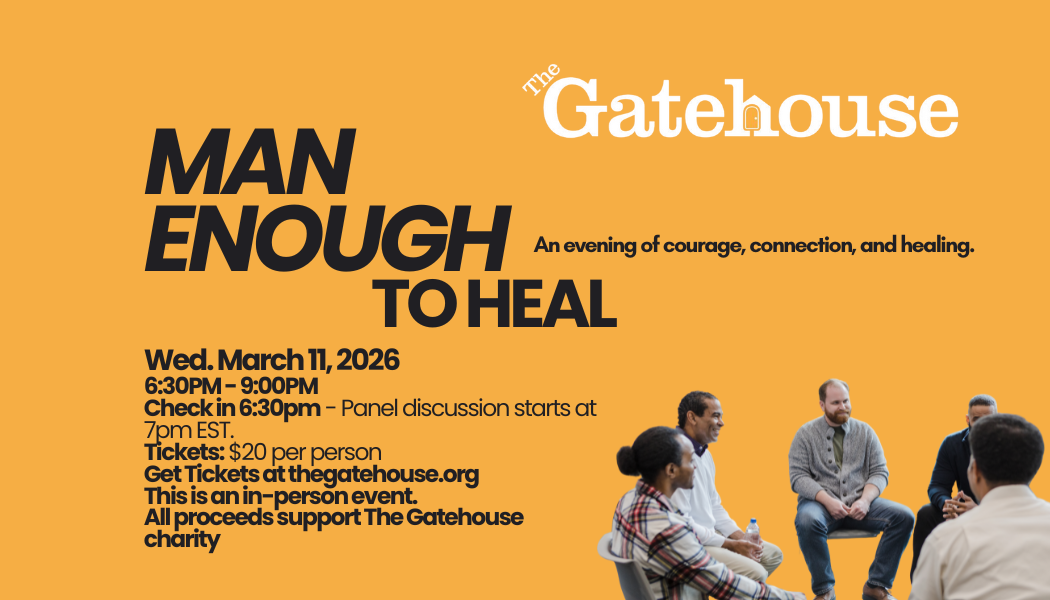Healing Through Curiosity
By Donneka Getten-Kerr, Placement Student, The Gatehouse, Social Service Worker
According to the Canadian Psychological Association, (n.d.), approximately 76% of Canadians report experiencing a traumatic event during their lifetime. So, it’s safe to say many people experience trauma at some point in life, at different degrees and extent of course. However, one thing for certain, it makes an impact on your life. It changes you. It may even stay with you for a while. How and how much you carry varies per individual and situation.
A tip? Be curious. Always be curious. Take the time to figure out your emotions, what they are what they mean and what you can do with them. Ask yourself questions like: What can this teach me? How can I learn from this? What can I learn about myself during this time? How can I use this to make myself a better person? How do I move on from this?
It does not have to be right away or next week or month. It should be when you are ready. When you are good enough to start fighting, when you have been down long enough and you want to do better and be better. It may be as simple as getting out of bed. Hey, that’s a win if you ask me. Sometimes it’s just the simple things in life.
Let’s look at this from a trauma informed approach, according to Shebib (2020):
- Build awareness:
- Recognize and acknowledge the trauma. Increase your understanding of the trauma and how it affects you.
- It allows for you recognize your triggers. It may also help you to realize and accept you are not at fault; this is something (something really bad and unfair) that happened TO you. You did not ask for this, you did not want this. And you most certainly did not deserve this.
- Managing emotional impulses:
- Experience your emotions. Allow yourself to come to terms with how you are feeling. This way you can differentiate and manage your reactions to triggers.
- How is this affecting me? Is it affecting others around me? My day-to-day life? How do I feel about the situation? I notice I get angry when see or hear certain things. When I listen to certain genre of music, I feel calm and safe. These will help you to manage your emotional impulses and understand how to deal with them when they arise. Then you can use those emotions and experiences to fuel your drive and motivation to do better, be better and to cope.
Take it one step at a time (que Jordin Sparks ‘One Step at a Time’) and don’t forget to be patient with yourself. Give yourself time and permission to slow down, to fall or pause (as long as you get back up and keep going). Another important thing – Don’t forget to celebrate the wins, even the little ones. You are powerful, you are resilient and you are a survivor. You’ve got this!
Hey, look at you now? Yesterday you couldn’t get out of bed and today you got up, took a shower and went back to bed… Win? Of course! Progress? You bet it is! And that calls for celebration, reward yourself.
- Next up, connections:
- You are resourceful. You are thinking of ways to get better, you are finding ways to motivate yourself and keep going.
- Tap into your resources. This may include a friend or a loved one, a support group, therapist or counsellor, a crisis line, inspirational quotes or affirmations, self care or even a talk with yourself. This may help you to understand the complex and sometimes confusing emotions you may experience. (Napier-Hemy, 2008).
Lastly, be proud of yourself. You survived. You are trying. You have a lot going on and you are doing the best you can. That’s worth something, maybe even everything and it’s definitely worth celebrating. Try to find positive and uplifting ways to help you grow and glow. As the saying goes “it’s mind over matter” (unknown)
References
Canadian Psychological Association. (2020, December 2). Traumatic Stress Section: Facts about Traumatic Stress and PTSD. https://cpa.ca/sections/traumaticstress/simplefacts/
Napier-Hemy, J. (2012, July 26). Sexual Abuse Counselling: A Guide for Parents and Children. Government of Canada. Retrieved January 19, 2023, from https://www.canada.ca/en/public-health/services/health-promotion/stop-family-violence/prevention-resource-centre/children/sexual-abuse-counselling-guide.html
Shebib, B. (2020). Choices: Interviewing and Counselling Skills for Canadians (7th edition). Toronto, Canada: Prentice Hall.

